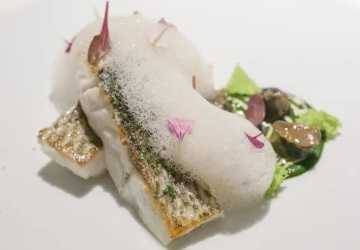Who Should Try Molecular Gastronomy?
Molecular gastronomy is an exciting field that combines the science of gastronomy with the art of culinary creation. Avant-garde techniques and exotic ingredients are used to create dishes that amaze and appeal to the senses. But who should venture into the mysterious realm of molecular gastronomy? This article looks at different groups who might find this culinary adventure particularly valuable.
Curious Hobby Cooks
For curious home cooks, delving into the universe of molecular gastronomy can be an exciting way to improve their culinary skills.
Why Home Cooks Should Embark on This Journey
- Molecular gastronomy recipes offer a new dimension to everyday cooking by transforming simple ingredients into extraordinary dishes.
- Understanding modernist kitchen concepts can boost creativity in the kitchen, allowing home cooks to wow friends and family.
- With a wealth of online resources, anyone can learn molecular gastronomy at their convenience.
Begin Your Adventure
- Start with basic molecular gastronomy recipes, such as spherification or gelatinization.
- Purchase some necessary tools, such as a sous vide machine or siphon.
- Explore virtual courses to learn molecular gastronomy techniques and theory.

Professional Chefs
Professional chefs are constantly looking for ways to innovate and stand out.
Benefits for Professional Chefs
- Molecular gastronomy recipes can enhance a restaurant's menu and attract foodies seeking a unique culinary experience.
- Incorporating modernist kitchen concepts can make a chef's products stand out from the competition.
- Chefs can study molecular gastronomy to stay up to date with the latest culinary trends and methods.
Practical Implementation
- Incorporate molecular gastronomy recipes into tasting menus to provide a memorable experience.
- Utilize modern culinary concepts to reinterpret traditional dishes in a contemporary style.
- Attend seminars or conferences to learn about molecular gastronomy from luminaries in the field.
Culinary Arts Students
Culinary Arts students can benefit greatly from studying molecular gastronomy.
Educational Benefits
- Molecular gastronomy recipes provide experience-based learning opportunities and make theoretical concepts concrete.
- Studying modern culinary concepts helps students understand the scientific principles of cooking.
- Molecular gastronomy courses allow students to learn molecular gastronomy techniques that are becoming increasingly relevant to the culinary industry.
Food Enthusiasts
Molecular gastronomy is an ideal pursuit for food enthusiasts who enjoy exploring new culinary frontiers.
Why Enthusiasts Should Explore Them
- Molecular gastronomy recipes challenge the traditional boundaries of cooking and eating.
- Embracing modern cooking concepts can make eating at home an adventurous experience.
- Enthusiasts can learn molecular gastronomy to deepen their understanding and appreciation of the science behind food.
Tech Enthusiasts
Due to its experimental nature, science and technology enthusiasts often find molecular gastronomy appealing.
The Fusion of Science and Cooking
- Molecular gastronomy recipes involve scientific processes such as emulsification, foaming, and spherification.
- Exploring modernist kitchen concepts can satisfy people's curiosity about how technology is changing food.
- Courses that study molecular gastronomy often include comprehensive scientific explanations, which are attractive to people with a technical background.
Innovators and Entrepreneurs
Innovators and entrepreneurs in the food industry can use molecular gastronomy to create unique business opportunities.
Business Potential
- Molecular gastronomy recipes can pave the way for the development of new types of food and culinary experiences.
- Modern cooking concepts can inspire new business models for catering, delivery, and restaurant concepts.
- Learning molecular gastronomy can provide a competitive advantage in the evolving food market.
Health and Nutrition Enthusiasts
Anyone interested in health and nutrition can also benefit from molecular gastronomy.
Health Benefits
- Molecular gastronomy recipes can be formulated to increase the nutritional value of dishes.
- Modern cooking concepts can help create healthier traditional recipes.
- Studying molecular gastronomy can illustrate the impact of cooking methods on the nutritional content of food.
Culinary Adventurers
Culinary adventurers are constantly searching for unprecedented experiences and unexplored areas in the gastronomic universe.
Why Culinary Adventurers Should Explore It
- Molecular gastronomy recipes offer unconventional cooking experiences that satisfy brave taste buds.
- Incorporating modern cooking concepts into personal cooking practices can transform traditional dishes into avant-garde masterpieces.
- Adventurers can study molecular gastronomy to discover the connection between art, science, and gastronomy.
Academic Researchers
Academic researchers in the field of food science can find fertile ground for scientific research in molecular gastronomy.
Academic Relevance
- Molecular gastronomy recipes can serve as practical case studies that illuminate the chemistry and physics of food.
- Studying modernist kitchen concepts can lead to new insights and breakthroughs in food technology and safety.
- Researchers can study molecular gastronomy to bridge the gap between theoretical scholarship and practical applications.
Cultural Explorers
Cultural explorers who are keen on discovering global cuisines can expand their culinary skills through molecular gastronomy.
Cultural Significance
- Molecular gastronomy recipes can reinterpret traditional dishes from different cultures, preserving their essence while giving them a modern nuance.
- Immersing yourself in the modernist kitchen concept can increase your understanding and appreciation of different culinary traditions.
- People interested in culture can learn molecular gastronomy to blend global flavors with cutting-edge techniques.
Entertainer at Home
Entertainers at home who enjoy hosting social gatherings and dinner parties can wow their guests with the wonders of molecular gastronomy.
Entertaining with Molecular Gastronomy
- Molecular gastronomy recipes can create memorable culinary experiences that leave a lasting impression on guests.
- By using the modernist kitchen concept, home-cooked meals can become an event.
- Entertainers at home can learn molecular gastronomy and master fascinating techniques.
Innovative Bartender
Innovative bartenders can expand their cocktail repertoire by incorporating molecular gastronomy into their craft.
Mixology and Molecular Gastronomy
- Molecular gastronomy cocktail recipes include techniques such as emulsification, gelation, and olfactory infusion.
- Exploring the ideas of modern cuisine can inspire the creation of visually appealing and delicious drinks.
- Bartenders can learn molecular gastronomy to innovate and push the boundaries of traditional mixology.

Food Educators
Food educators who teach culinary arts can incorporate molecular gastronomy into their curriculum to enrich educational practice.
Education Advancement
- Molecular gastronomy recipes provide experiential learning opportunities that illustrate complex scientific concepts.
- Teaching modern culinary concepts can promote student creativity and innovation.
Environmentalists
Environmentalists interested in sustainable practices can explore how molecular gastronomy can promote environmentally friendly cooking practices.
Sustainability of Molecular Gastronomy
- Molecular gastronomy recipes can include sustainable and locally sourced ingredients.
- Exploring modern culinary concepts can accelerate the development of environmentally friendly cooking techniques.
Conclusion
Molecular gastronomy is an exciting and diverse field that has something for everyone, from amateur to professional chefs, culinary students, foodies, science enthusiasts, entrepreneurs, and the health-conscious. Whether you want to expand your culinary skills, get creative in the kitchen, or explore the science behind food, molecular gastronomy recipes, modern cooking concepts, and the opportunity to learn molecular gastronomy offer endless opportunities for creativity and discovery.


